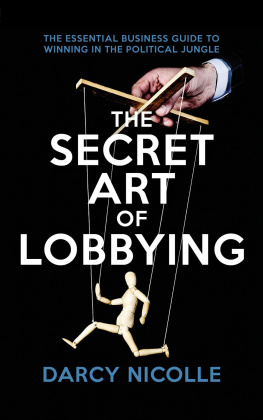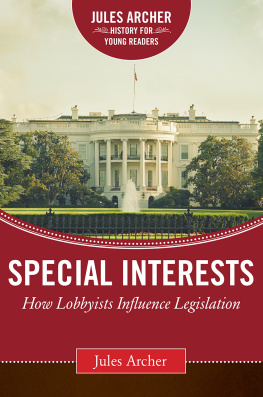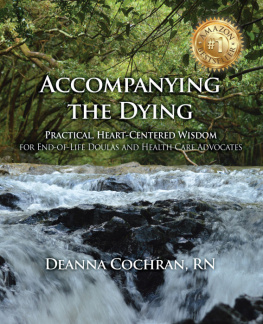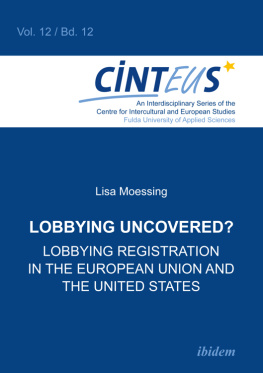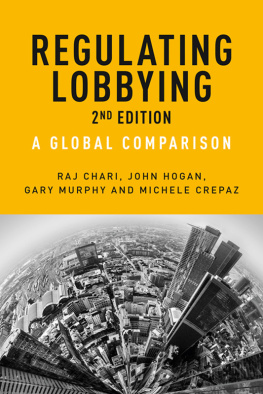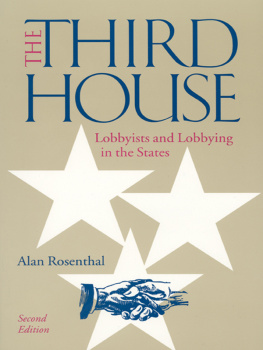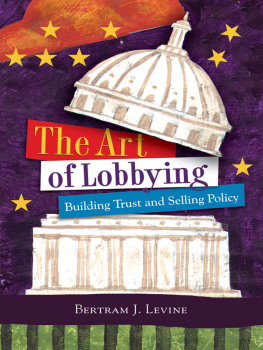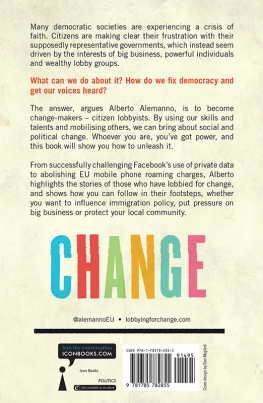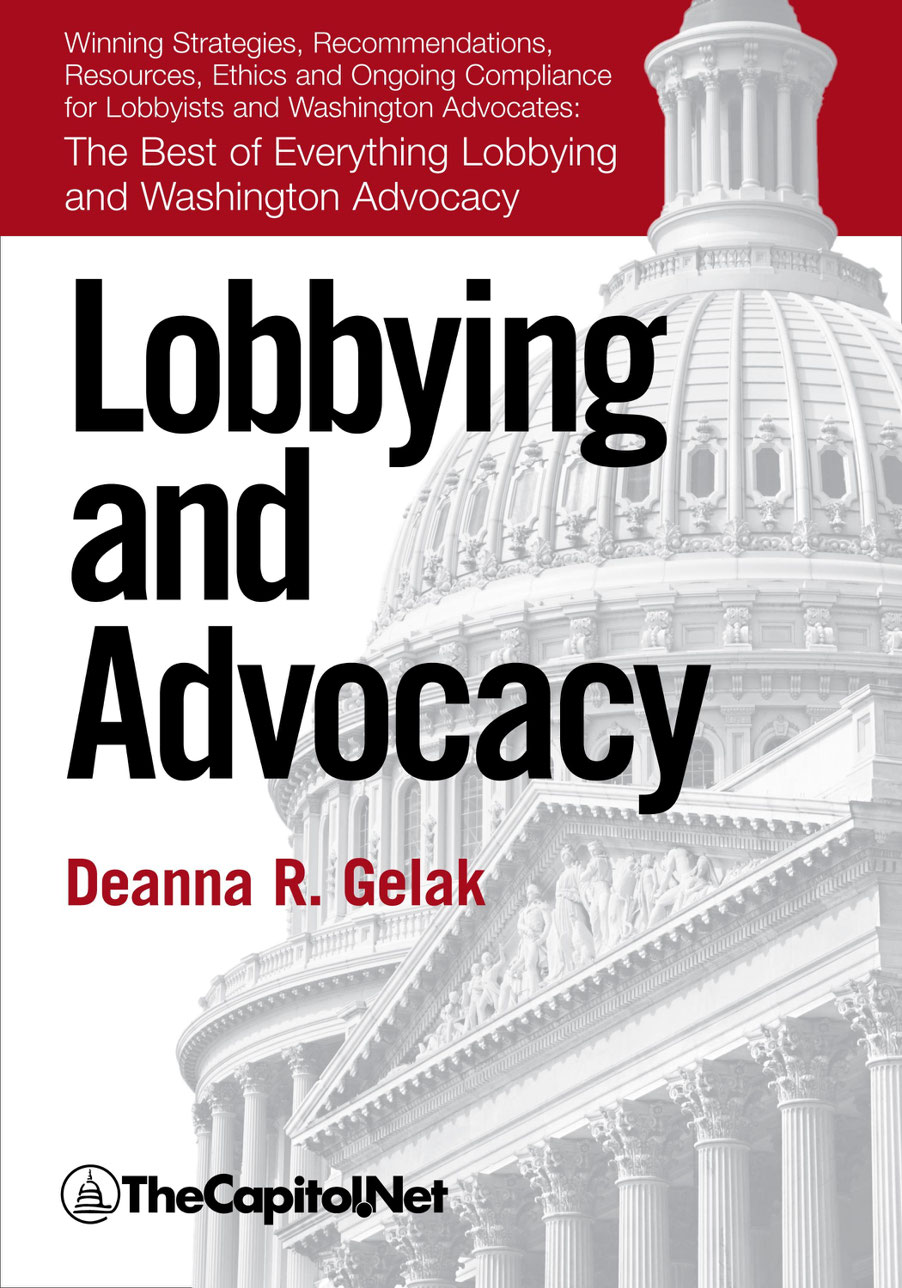TheCapitol.Net, Inc. is a non-partisan firm that annually provides continuing professional education and information for thousands of government and business leaders that strengthens representative government and the rule of law.
Our publications and courses, written and taught by current Washington insiders who are all independent subject matter experts, show how Washington works. Our products and services can be found on our web site at www.TheCapitol.Net.
Additional copies of Lobbying and Advocacy can be ordered online:www.LobbyingAndAdvocacy.com.
Citation FormURLs: We use a standard style for all web addresses, also known as Uniform Resource Locators (URLs). URLs appear in text next to the first mention of the resource being described, and are surrounded with open and close angle brackets.
For URLs that have the standard web addressing form at the beginning of the URL of http://www. we show only the initial www. For example, the URL http://www.domainname.com will appear in text and tables as www.domainname.com.
For URLs that begin with anything other than www., such as http://thomas.loc.gov, the URL will appear in text and tables as http://thomas.loc.gov. For example, the URL http://www3.domain.gov will appear in text and tables as http://www3.domain.gov.
Design and production by Zaccarine Design, Inc., Evanston, IL; 847-864-3994.
Copyright 2018 By TheCapitol.Net, Inc.
PO Box 25706
Alexandria, VA 22313-5706
703-739-3790 Toll free: 1-877-228-5086
www.TheCapitol.Net
All Rights Reserved. No claim made to original US Government documents.
Printed in the United States of America.
v 1.0
Lobbying and Advocacy, hardbound: ISBN: 1587331047 ISBN 13: 978-1-58733-104-6
Lobbying and Advocacy, softbound: ISBN: 1587331004 ISBN 13: 978-1-58733-100-8
Lobbying and Advocacy, eBook: ISBN:9781587332692
Summary Table of Contents
About the Author
Deanna R. Gelak has worked in the legislative branch, executive branch, and private/ nonprofit sector arenas since 1984. She is founder and president of Working for the Future, LLC, a public policy firm that advises organizational spokespersons and citizen leaders on effective political involvement and communication strategies.
Ms. Gelak served two terms as the president of the American League of Lobbyists, the national professional association for lobbyists. In that capacity, she served as chair of the board and the national spokesperson for the advocacy profession.
She has promoted the importance of effective and ethical lobbying in such venues as CSPANs Washington Journal, National Public Radios Talk of the Nation, and the National Press Club. Her press interviews have also included: NBC Nightly News, MSNBC, Associated Press, Scarborough Country, Fox News, several National Public Radio shows, The Tavis Smiley Show, Americas Voice, Wall Street Journal, Time magazine, Wall Street Journal Talk, The Mary Matalin Show, National Press Club, Monitor Radio, Bloomberg, Family News in Focus, National Journal, United Press International, Washington Post, Washington Times, Roll Call, USA Today, Investors Business Daily, CBS Marketwatch.com, Chicago Tribune, San Francisco Chronicle, Knight Ridder/ Tribune, Strategic Finance, Christian Science Monitor, Boston Globe, Boston Herald, Baltimore Sun, Austin Statesman, Orlando Sentinel, Miami Herald, Business Insurance, Business Week, Parenting, Parents, Glamour, and Working Woman.
She is a faculty member for TheCapitol.Net, the exclusive provider of Congressional Quarterly Executive Conferences and a certificate trainer for the American League of Lobbyists Lobbying Certificate Program.
Ms. Gelak assists leaders to more effectively influence public policy. Her communications training method has been used in Afghanistan, Jordan, Morocco, and Iraq. For more than a decade, she has provided congressional briefings, political involvement training programs and consulting to thousands of organizations and individuals, including congressional leadership and committees, the U.S. Coast Guard, the U.S. Department of Veterans Affairs, and the U.S. Department of Labor. She designed the mock Congress for National 4H to educate high school students from across the nation on how Congress works.
Ms. Gelak has led numerous congressional coalitions. For example, she chaired the national Congressional Coverage Coalition, the successful effort to make labor and civil rights laws applicable to members of Congress and their staffs for the first time in history. Previously, members of Congress were exempt from the labor and civil rights laws that they had passed for the rest of the country.
Ms. Gelak achieved certification as a Senior Professional in Human Resources, which reflects her expertise in human resource policy issues. She is the former director of governmental affairs for the Society for Human Resource Management, a professional society with more than 175,000 professional members, and has authored numerous articles and publications on various workplace public policy issues. She has achieved significant expertise on work-life balance policy issues and served on a Bureau of National Affairs advisory committee in the area. Ms. Gelak also has worked for the Committee on Education and Labor of the U.S. House of Representatives and as a congressional liaison officer in the executive branch (U.S. Department of Labor).
Originally from Niceville, FL, Ms. Gelak is a graduate of the University of Florida.
Preface
Everything in the world that deals with human relations, in one way or another passes through the halls of Congress. Everything eventually ends up somewhere in the legislative thinking of Congress.
Mike Michaelson, former CSPAN executive vice president and former staffer for five House speakers
Source: Exploring the Capitol: A Self-Guided Tour through the Halls of Congress (C-SPAN)
Former President Dwight D. Eisenhower once suggested that Politics ought to be the part-time profession of every citizen who would protect the rights and privileges of free people and who would preserve what is good and fruitful in our national heritage. He understood that laws touch the lives of ordinary people.
Members of Congress continually cast consequential votes and make decisions that can directly influence issues as personal to us as the air we breathe, the products we buy, the services we use, the policies where we work, the health care that we receive, the benefits we will receive upon retirement, and the defense of our country. Whether aware of it or not, Americans do not go through a day without being affected in some way by a federal, state, or local law.
Indeed, legislative decisions are increasingly complex. First, the sheer volume of legislative activity is enormous. For example, in 2005 alone, 8,321 measures were introduced in Congress, 728 recorded votes were cast in the full House of Representatives and Senate, and 169 public bills were enacted into law. Approximately 7,553 witnesses testified before Congress in 1,546 congressional hearings. In the April 25, 2007, article, What You Know Washington, a guest columnist for The Hill newspaper documented the increase in legislative and executive branch activity:
The 109th Congress introduced 64 percent more pieces of legislation than the 104th Congress (13,074 pieces of legislation, up from 7,991) while the Federal Register last year published more than 75,000 pages of rules and regulations.
Next page

